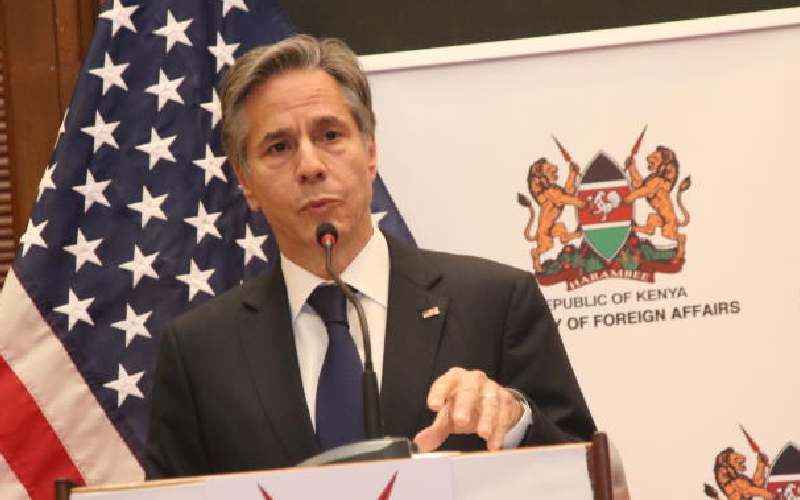×
The Standard e-Paper
Join Thousands Daily

US Secretary of State Antony Blinken addresses media during a press briefing with the Foreign Affairs ministry CS Rachael Omamo briefing on Kenya and US bilateral relations at Serena Hotel on November 17, 2021. [ David Gichuru, Standard]
US Secretary of State Antony Blinken’s visit to Kenya this week offers a timely opportunity to review electoral preparedness, the state of our democracy and the Jubilee administration’s strategic role in the region.